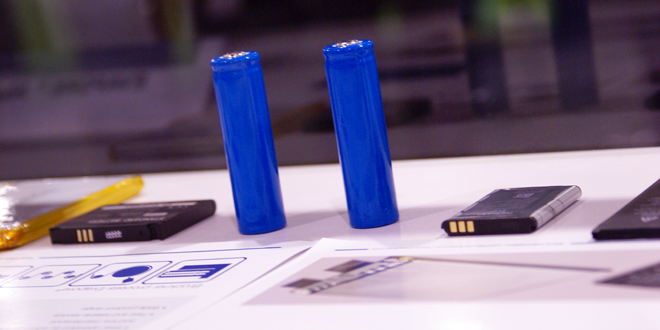The University of Colorado Boulder (CU) has signed an agreement with Solid Power LLC, a spin-off company, to develop and commercialize a solid-state battery technology that has the potential to greatly improve EV range. Solid Power, founded by Se-Hee Lee and Conrad Stoldt, both associate professors of mechanical engineering, was recently awarded a $3.4 million grant from the DOE’s Advanced Research Projects Agency-Energy.
Engineers have long known that using lithium metal for an anode can dramatically increase a battery’s energy density. But using lithium metal, a highly reactive solid, in conjunction with a liquid electrolyte is hazardous because it increases the chance of a thermal runaway reaction.
Lee and Stoldt solved the safety concerns by eliminating the liquid electrolyte – they built an entirely solid-state battery that uses a ceramic electrolyte to separate the lithium metal anode from the cathode. Because their battery is safer, it requires less protective packaging, which could reduce the weight of the battery pack.
Researchers have been working on solid-state batteries for a couple of decades, but it has been hard to create a solid electrolyte that allowed ions to pass through it as easily as a liquid electrolyte.
“The problem has always been that solid electrolytes had very poor performance, making their use in rechargeable batteries impractical,” Stoldt said. “However, the last decade has seen a resurgence in the development of new solid electrolytes with ionic conductivities that rival their liquid counterparts.”
“The real innovation is an all-solid composite cathode that is based upon an iron-sulfur chemistry that we developed at CU,” Stoldt added. “This new, low-cost chemistry has a capacity that’s nearly 10 times greater than state-of-the-art cathodes.”
Last year, Lee and Stoldt partnered with product development expert Douglas Campbell to spin out Solid Power.
“We’re actively engaging industrial commercial partners to assist in commercialization and expect to have prototype products ready for in-field testing within 18 to 24 months,” said Campbell, Solid Power’s president.
Source: University of Colorado Boulder


















































